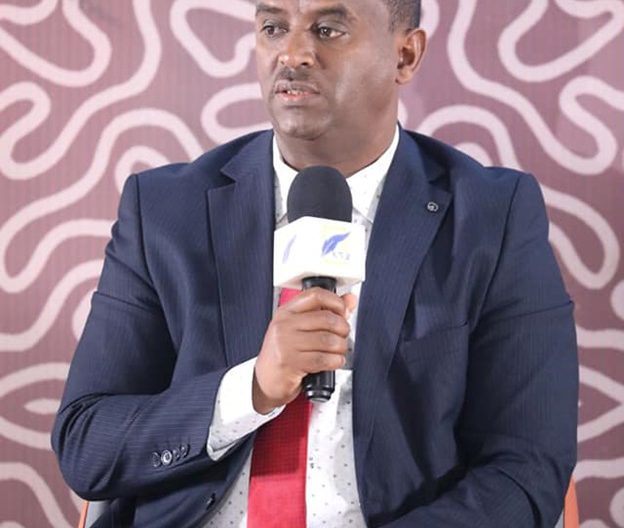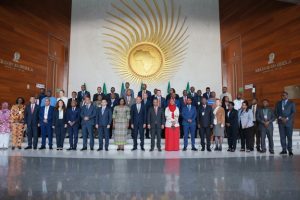
BY HAFTU GEBREZGABIHER
The Director General of the Ethiopian Media Authority (EMA), Mohamed Idris, who presented an article at the ninth EPA panel discussion on Ethiopia, stated that the proliferation of cyber media is becoming both an opportunity and a challenge for the media sector countries in general.
“Increasing digital knowledge, empowering journalists and developing indigenous platforms should be taken as a best possible means to utilize the benefits of cyber media during this era.”
According to Mohammed, the proliferation of technology has become both an opportunity and a challenge for the mainstream media and for governments worldwide. As much as the development of technology has challenged the media, it has also empowered individuals. Because they have made them challenge respective leadership in their countries.
Mohammed said that the cyber context has made it possible for an individual to be placed as a media organization. Therefore, it will not be different when it comes to the reality in our country. “It has created individuals who make up to 50 thousand dollars a month from YouTube.”
The director general mentioned that the expansion of social media has brought a lot of opportunities. It gave the opportunity for every citizen to have an active role in the country and helped to share information faster.
Social media in Ethiopia has helped to protect national interest, during the law enforcement campaign; their role in dealing with the pressure on the GERD was significant, said Mohammad.
The director said that the context in which the cyber media has created an opportunity for false reporting; he explained that it is the cyber media that is making an individual hide his real identity and give false information.
“Cyber media has reached a stage where an individual can replace the role of the media.”
Being fast is becoming more preferable to being right in the new cyber media context. Most people spend most of their time with their smart phones. This is especially the reality for young generation; Mohammed explained that it is also leading people to take the wrong sides through disseminating false information.
Mohammed said that the platforms that provide such technological advancement to world only distribute the information that their owners want. This was especially seen during the law enforcement and survival campaign in Ethiopia. Therefore, increasing digital knowledge, empowering journalists, and developing indigenous platforms should be the governing principles in using cyber media in Ethiopia, he said.
The pros for the advancement of cyber media can be when people are able to communicate with other people online, and then they have the opportunity to speak with other people at a time that is convenient for both parties.
This asset is available 24/7 to ensure that any information people need to send to someone can be viewed. The only requirement necessary to take advantage of the benefits of cyber communication is an Internet or cellular data connection.
In the era of cyber media, there are multiple methods of communication available for people. This is another advantage. Cyber communication makes it possible for people to feel comfortable in their homes, offices, or remote locations while still having an opportunity to speak with others. You get to collaborate while being online without having the “extrovert” qualities necessary to have your message get across others like some face-to-face meetings require. That means this form of communicating levels the playing field because it allows those who prefer to be reserved to have an opportunity to speak just as loudly as anyone else who happens to be on the line at that moment.
A study by the University of Tennessee, Knoxville, USA stated that with new environmental developments and terrorism breeding opportunities for crises, and media proliferation and advancement increasing exposure to crises, organizations have placed a higher premium on crisis management.
Through a thorough literature review, the purpose of this paper was to demonstrate how crisis communications is important today more than ever with media (traditional and new) increasing the exposure of the crises, and new media – particularly social media – adding to and creating this exposure.
The paper takes a broad view of crisis communications by examining the varying definitions of crisis and crisis communications, as well as highlighting a few related crisis communication functions, strategies, models and theories. Within this, the overview was a concentration on the positive and negative impact of social media on the practice of crisis communications. The paper explored how social media can help the practice by supplying stakeholders with a ready resource to make sense of a crisis, and by creating a way to share integral, time-sensitive information quickly to citizens and crisis managers and communicators. By the same token, social media can hinder organizations’ crisis communications by spreading misinformation at rapid speed. Also, not everyone using social media has the best intentions – they may use it to harm an organization thereby potentially creating a crisis for both the organization and those stakeholders who bear the risk.
However, the finding does not specifically outline a plan in how to successfully use this tool. This is because there is little non-anecdotal research into the preferences of stakeholders when it comes to communicating via social media with organizations.
There is also little research as to how to build relationships with stakeholders using social media. This paper can only offer speculative recommendation built on a thorough literature review search. Furthermore, this paper discusses the power of crisis communications to shape stakeholders’ perception of an event but does not discuss the success rate of social media in accomplishing this goal.
This is because not much is known as to how effective social media is in framing messages and perceptions in times of crises.
More research is needed as to how crisis communicators can use the new media to harness useful information, reach fragmented audiences, and blunt potential crises.
The better crisis communicators understand this tool, the better they can use it their advantage in times of crises, to help both their organization and their stakeholders.
THE ETHIOPIAN HERALD FRIDAY 19 AUGUST 2022





